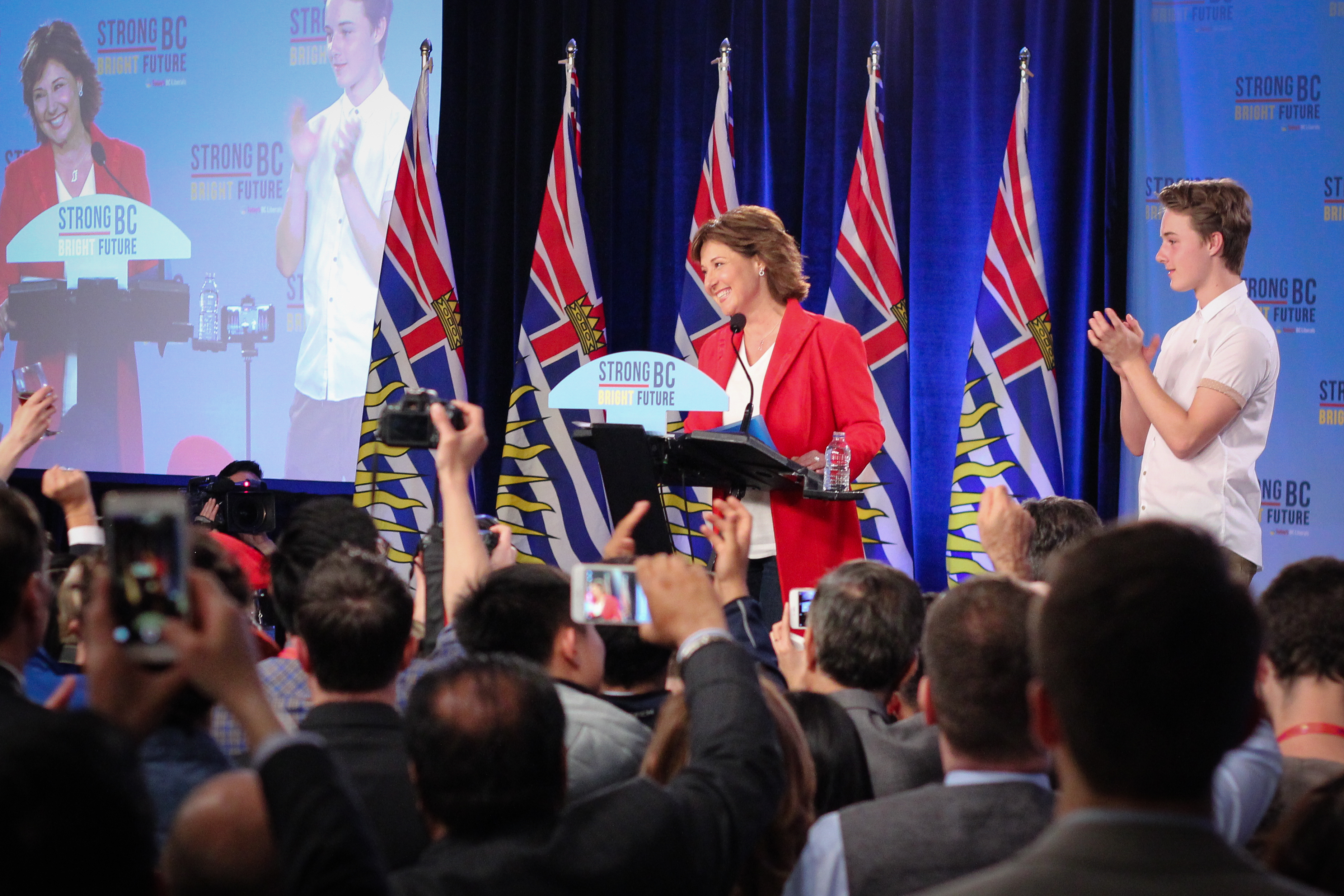If the minority government result holds, BC Liberal leader Christy Clark may have a hard time keeping her job and Green leader Andrew Weaver will face a difficult choice, says a University of British Columbia political scientist.
“The caucus that Christy Clark will have to work with is dominated by people from the places that used to elect Socreds,” said professor Richard Johnston. “They don’t like Vancouver very much and they probably don’t like her very much, frankly.”
Clark’s Liberals failed to make gains on Vancouver Island, lost ground in the Lower Mainland and solidified their strength in the Fraser Valley, Interior and North in Tuesday’s election.
Johnston said that geographic shift in the Liberal caucus could mean trouble for Clark. “It will be interesting to see whether the Liberal Party, given its transformed base, undergoes a further transformation,” he said.
The initial results have the BC Liberals with 43 seats, the NDP with 41, and the BC Greens holding the balance of power with three. The result won’t be official until the final count is concluded on May 24, adding absentee and other special ballots to the total.
Several constituencies are close, especially Courtenay-Comox where the NDP candidate was ahead of the BC Liberal by nine votes. In Maple Ridge-Mission the NDP candidate led the Liberal by 120.
Lieutenant Governor Judith Guichon spoke with Clark this morning and asked her to carry on as premier for the time being.
If the Greens still hold the balance of power after the final results are in, there will be risks to supporting either the BC Liberals or the NDP, Johnston said.
If British Columbians really voted for change, Weaver and the Greens should oust the BC Liberals from power, he said. But to do that, they would have to back the NDP despite its fewer seats.
Johnston said that while that’s part of the Canadian system of government, it may be a tough sell to the public. “Out there in the electorate, the argument that the party with the largest single number of seats and that won the popular vote [should form government] has a lot of resonance,” he said.
“Andrew Weaver has to stickhandle through this very carefully,” Johnston said, arguing he could damage both his own party and the NDP if he puts them in power.
Johnston also noted that elections are expensive and that the Greens are least able to afford to fight another campaign anytime soon. “Andrew Weaver had better not overestimate his bargaining power,” he said.
Kathryn Harrison, also a UBC political science professor, said it’s unclear who the Greens will support. “The high-profile policies in the Green platform are closer to the NDP, but it’s not clear that the leaders are so close nor necessarily that their voters are.”
All three leaders spoke with the media today.
Clark said British Columbians have sent the parties a message that they want them to take a collaborative approach to governing. She noted that she has worked with Weaver in the past and said she has common ground with him. “We will work, all of us, together to earn your trust,” she said.
Horgan said he will work with anyone to make life better for British Columbians and that he and Weaver agree the BC Liberals have failed on several key issues. He said banning corporate and union donations to political parties is his top priority.
Horgan also noted there are 176,000 ballots still to be counted. “The game’s not over.”
Weaver said his number one priority is getting big money out of B.C. politics and that Greens will work with anyone who wants to put forward and pass good public policy. “We’re above the partisan rhetoric,” he said.
But with the results unlikely to be final before May 24, it would be premature to commit to anything, he said. ![]()
Read more: BC Election 2017, BC Politics

















Tyee Commenting Guidelines
Comments that violate guidelines risk being deleted, and violations may result in a temporary or permanent user ban. Maintain the spirit of good conversation to stay in the discussion.
*Please note The Tyee is not a forum for spreading misinformation about COVID-19, denying its existence or minimizing its risk to public health.
Do:
Do not: